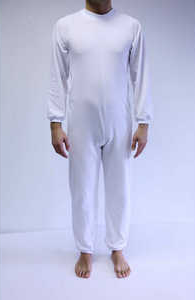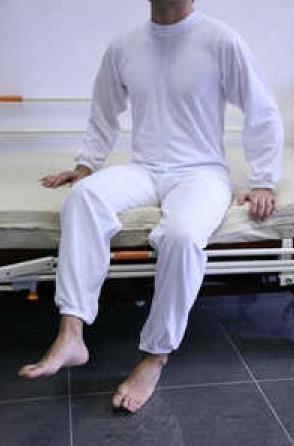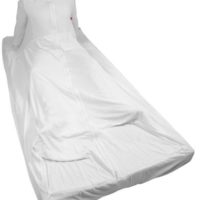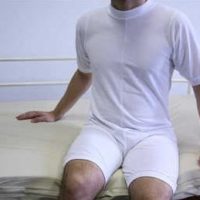Description
Pyjama, Long in Sleeves and Legs, Zipper in the Legs
Pyjama, Long – Sleeves and Legs. supporting a product especially suitable for patients with dementia; has sleeves and long to use as pajamas and the rack is placed on the back for easy placement legs.
Long pijama for incontinence is also used to protect the skin of patients who are injured scratching.
Features
50% cotton, 50% polyester
4 Sizes: S, M, L, XL
Wash
- Maximum washing temperature 60 ° C.
- Supports ironing average temperature, maximum 150 ° C.
- Can be tumble dried.
- Do not bleach.
REFERENCE PRODUCT
UgATV-1081-S Pyjama Long back zipper size A
UgATV-1081-M Long back zipper size M
UgATV-1081-L Pyjama Long back zipper size L
UgATV-1081-XL Long back zipper size XL
Dementia Increases probabildad Incontinence
Patients diagnosed with dementia are three times more likely urinary incontinence and four times more fecal incontinence, compared to those who have detected this degenerative condition.
According to a study led by Robert Grant, University of Kingston and St. George’s University of London, UK, and colleagues.
In addition, patients with dementia and incontinence were more likely to receive medication for incontinence and those with in dwelling catheters incontinence but without dementia, the authors highlight research.
“Incontinence is a common problem for people with dementia. Suppliers and service planners for dementia should anticipate high levels of need, including counseling and support for carers in the management of incontinence,” the researchers propose.
PACKAGED PIJAMA FOR INCONTINENCE PRODUCT:

Dementia Increases probabildad Incontinence
Patients diagnosed with dementia are three times more likely urinary incontinence and four times more fecal incontinence, compared to those who have detected this degenerative condition.
According to a study led by Robert Grant, University of Kingston and St. George’s University of London, UK, and colleagues.
In addition, patients with dementia and incontinence were more likely to receive medication for incontinence and those with in dwelling catheters incontinence but without dementia, the authors highlight research.
“Incontinence is a common problem for people with dementia. Suppliers and service planners for dementia should anticipate high levels of need, including counseling and support for carers in the management of incontinence,” the researchers propose.
Often, people with dementia are reluctant to wear protective underwear.
There are some tricks that could be helpful; for example, the incorporation of underwear as a natural part of getting dressed in the morning.
Place pads on underwear before giving it to your loved one when getting dressed or getting up from the toilet. If your loved one expresses strength, you could say, “This will help me to take better care because not have to worry” or “This will help, because they have to run to the bathroom with the risk of falling.”
Do not humiliate people.
They do not intentionally and may be ashamed. Call it an accident, be practical and offer comfort so it happened















Reviews
There are no reviews yet.